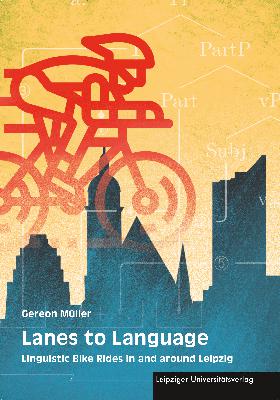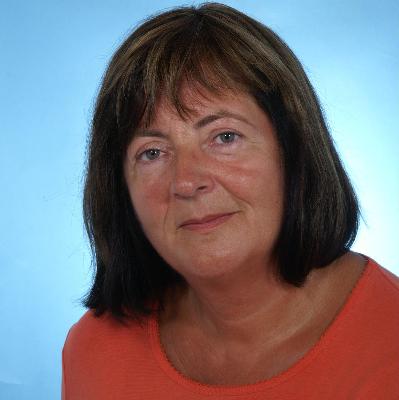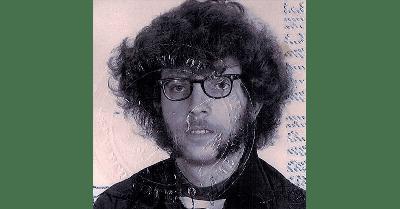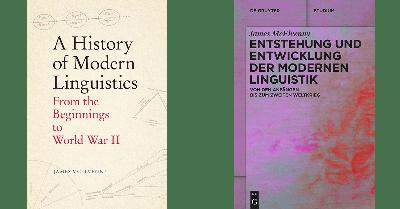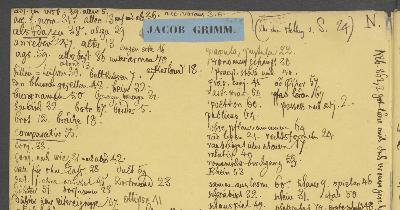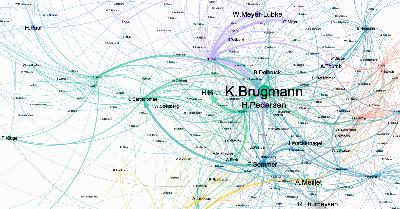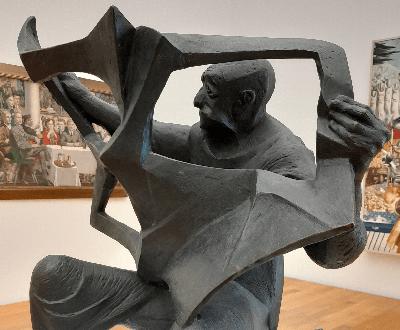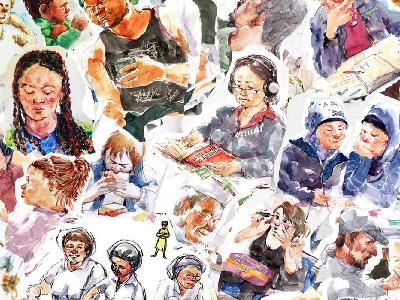Podcast episode 44: Ian Stewart on the Celts and historical-comparative linguistics
Description
In this interview, we talk to Ian Stewart about modern ideas surrounding the Celts and how these relate to historical-comparative linguistics.
<figure class="wp-block-audio"></figure>
Download | Spotify | Apple Podcasts | YouTube
References for Episode 44
Crump, Margaret, James Cowles Prichard of the Red Lodge: A Life of Science during the Age of Improvement (Nebraska, 2025).
Davies, Caryl, Adfeilion Babel: Agweddau ar Syniadaeth Ieithyddol y Ddeunawfed Ganrif (Caerdydd, 2000).
Droixhe, Daniel, La Linguistique et l’appel de l’histoire (1600-1800): rationalisme et révolutions positivistes (Geneva, 1978).
Lhuyd, Edward, Archaeologia Britannica: Vol. 1 Glossography (Oxford, 1707).
Pezron, Paul-Yves, Antiquité de la nation et de la langue des Celtes, autrement appellez Gaulois (Paris, 1703).
Pictet, Adolph, ‘Lettres à M. A.W. de Schlegel sur l’affinité des langues celtiques avec le sanscrit’, Journal asiatique 3.1 (1836), 263-90, 417-448; 3.2 (1836), 440-66.
Poppe, Erich, ‘Lag es in der Luft?: Johann Kaspar Zeuß und die Konstituierung der Keltologie’, Beiträge zur Geschichte der Sprachwissenschaft 2 (1992), 41-56.
Prichard, James Cowles, The Eastern Origin of the Celtic Nations: Proved by a Comparison of their Dialects with the Sanskrit, Greek, Latin, and Teutonic Languages (London, 1831)
Roberts, Brynley F., Edward Lhwyd: c.1660-1709, Naturalist, Antiquary, Philologist (Cardiff, 2022).
Shaw, Francis, ‘The Background to Grammatica Celtica’, Celtica 3 (1956), 1-16.
Sims-Williams, Patrick, Ancient Celtic Place-Names in Europe and Asia Minor (Oxford, 2006).
Sims-Williams, Patrick, ‘An Alternative to “Celtic from the East” and “Celtic from the West”’, Cambridge Archaeological Journal 30 (2020), 511-29.
Solleveld, Floris, ‘Expanding the Comparative View: Humboldt’s Über die Kawi-Sprache and its language materials’, Historiographia Linguistica 47 (2020), 49-78.
Stewart, Ian, The Celts: A Modern History (Princeton, 2025).
Stewart, Ian, ‘After Sir William Jones: British Linguistic Scholarship and European Intellectual History’, Journal of Modern History 95 (2023), 808-846.
Stewart, Ian, ‘James Cowles Prichard and the Linguistic Foundations of Ethnology’, Berichte zur Wissenschaftsgeschichte 46 (2023), 76-91.
Van Hal, Toon, ‘Moedertalen en taalmoeders’. Het vroegmoderne taalvergelijkende onderzoek in de Lage Landen (Brussels, 2010).
Van Hal, Toon, ‘When Quotation Marks Matter: Rhellicanus and Boxhornius on the differences between the lingua Gallica and lingua Germanica’, Historiographia Linguistica 38 (2011), 241-52.
Van Hal, Toon, ‘From Alauda to Zythus. The emergence and uses of Old-Gaulish word lists in early modern publications’, Keltische Forschungen 6 (2014), 219-77.
Transcript by Luca Dinu
JMc: Hi, I’m James McElvenny, and you’re listening to the History and Philosophy of the Language Sciences podcast, online at hiphilangsci.net. [00:16 ] There you can find links and references to all the literature we discuss. [00:21 ] Today we’re talking to Ian Stewart, who’s a historian of Britain and Europe in the 18th and 19th centuries and a researcher at the University of Edinburgh. [00:32 ] Ian’s latest book, The Celts: A Modern History, is coming out in March 2025 with Princeton University Press. [00:42 ] In this book, Ian offers a path-breaking, and at the same time magisterial, account of how the modern notion of the Celtic nations took shape. [00:51 ] Linguistic evidence and theorizing, as Ian shows in his book, played no small part in these developments. [00:58 ] Ian’s also looked at the early history of historical-comparative linguistics in Britain and suggested some key revisions to the standard narrative of how this field took root there. [01:10 ] The stories of the modern notion of the Celts and of early historical-comparative linguistics in Britain have many points of contact, and this is what Ian will be talking to us about today. [01:21 ] So, Ian, who are the Celts? [01:23 ] What was the significance of identifying the so-called Celtic nations in the modern period? [01:30 ]
IS: Hi, James. [01:32 ] As you know, I’m a big fan of the podcast, and so it’s really exciting to be here. [01:36 ] Who are the Celts? [01:38 ] Well, that depends on who you ask and when. [01:42 ] It’s a question that’s been asked in many different ways over the last two and a half thousand years, at least. [01:48 ] To begin with, the Celts are a people who started to be mentioned in classical sources in about 500 BCE. [01:56 ] Herodotus, for example, refers to them as a people living somewhere in Western Europe. [02:02 ] In the 4th century BCE, people like Plato and Aristotle refer to them as a warlike people. [02:07 ] This is especially after a Celtic group sacked Rome in about 387 BCE, and then 100 years later, another group invaded the Balkans. [02:18 ] And so, you see, the Celts remained the steady presence as a bellicose people somewhere in Europe, but they became sort of less feared as the Romans grew in power. [02:30 ] Caesar’s famous Gallic Wars, obviously written in the middle of the 1st century BCE, is about the conquest of Gaul, one of whose parts is called Celtica. [02:40 ] And so, as we move into the first few centuries of the Common Era, references to the Celts start to become fewer, and by 500 CE, you know, they stop altogether. [02:49 ] So, to sum up, basically, from the classical sources, the Celts are a barbarian people who were fearsome enemies, with their own complicated social, cultural, and religious structures, who feature strongly in the literary record between about 500 BCE and 500 CE. [03:08 ] The details about this group, or groups, are really hazy. [03:12 ] They’ve been argued about in all sorts of different ways. [03:15 ] We don’t know, you know, how much sort of common identification among groups there was, but what we can basically say is that there were people speaking Celtic languages in most of Western and Central Europe, including Britain and Ireland, modern France, Spain, Italy, Switzerland, Central Europe, Southern Germany, and as far east as Anatolia. [03:38 ] And so even though the Celts didn’t have their own literary cultures, and even though the historical record left by classical writers is pretty imperfect, the Celts left behind all sorts of evidence — including linguistic evidence, as you alluded to — that later scholars would make use of to construct this picture that we now have. [03:56 ] Now, why they become important in the modern period is, basically, they become rediscovered during the Renaissance [04:04 ] — when the predominant approach to history was genealogical, and the origins of nations, regions, cities, dynasties, all sorts of institutions, take on huge importance in establishing legitimacy — [04:19 ] and so scholars devoted considerable energy in tracing the migrations and conquests of ancient peoples [04:26 ] in order to give their own nation, or whoever they were writing for, a prestigious pedigree. [04:32 ] And basically, because of what I just mentioned about their extensive presence in the classical sources, and through their close association with the Gauls especially, the Celts retained this important place in the historical imagination. [04:45 ] So basically, from the early modern period, it’s off to the races, and they become claimed as prestigious ancestors in all of the countries I mentioned. [04:56 ] And so, my book is basically about this Celticism, which is basically why people in different places around Europe, from the early modern era to the present, have answered the question, who are the Celts and the way that they did, usually in favor of their own nation. [05:12 ] They’re usually trying to claim the Celts as their particular special ancestor, and the wranglings over the Celts basically change… [05:23 ] I sort of say that they’re determined by… basically, that these pictures of national images of ancestry change as a result of scholarly imperatives, but also political imperatives. [05:35 ] So it’s not just that nations are invented from scratch. [05:39 ] You know,




